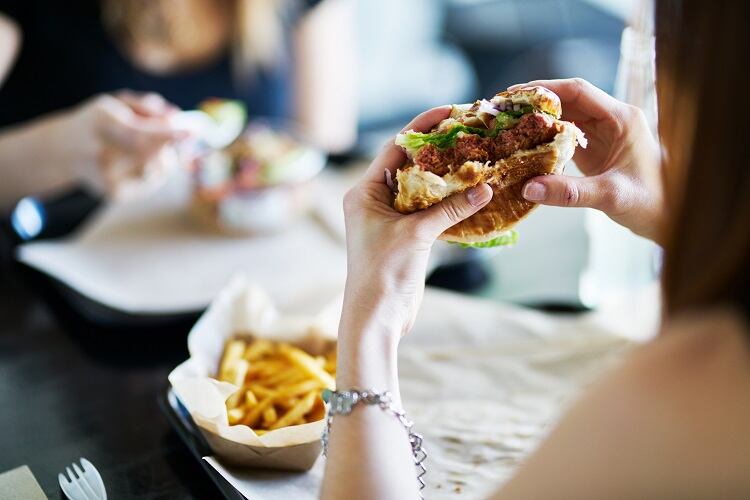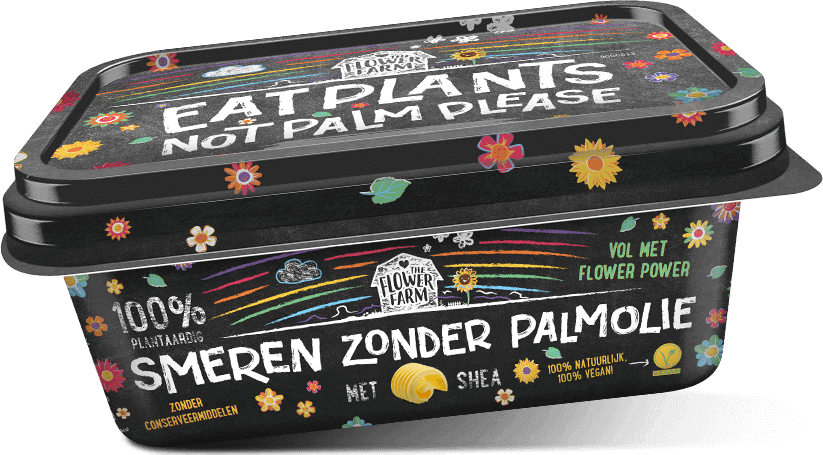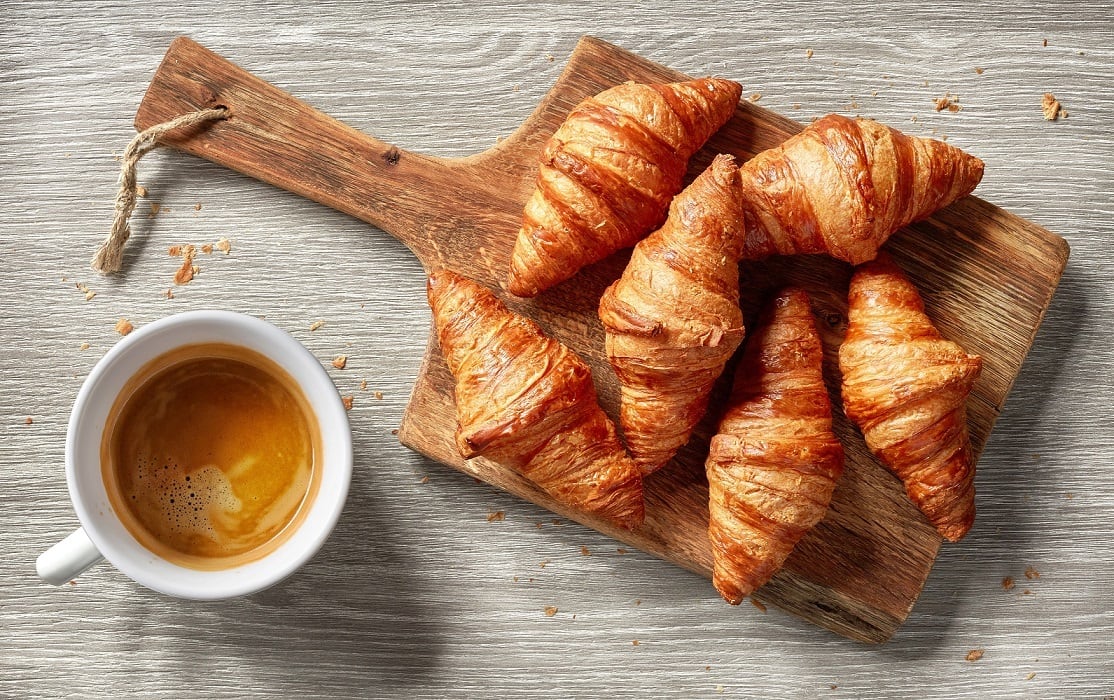Global ingredients supplier Bunge Loders Croklaan (BLC) has developed two new plant-based fat products for the vegetarian burger market: one made from shea, and the other from palm.
The aim, according to marketing director for BLC Europe, Feike Swennenhuis, is to recreate the sensory experience derived from beef in plant-based alternatives.
“A significant number of European consumers are adopting a version of the vegan or vegetarian lifestyle,” noted Swennenhuis. “Still, they insist on not missing out on that sensation of biting into a succulent beef burger and are seeking sustainable meat alternatives that can deliver the same eating experience.”
Acknowledging that fat, ‘especially derived from beef’, is a key contributor to flavour, BLC’s latest offerings have been designed to mimic the functional properties of beef fat.
“Our specialty palm and shea fat products can produce that palate-appealing melting fat behaviour and meat-like texture to burger analogues, providing an all-around better mouthfeel uncannily like the real thing,” said BLC Europe’s director of innovation, Renee Boerefijn.
Further, the products can help improve firmness, cohesiveness, springiness, and can potentially reduce the need for additives, such as emulsifiers, gum-based texturisers, and flavour enhancers, she continued.
Palm-based system
According to BLC, its palm-based system is a ‘flaked’ product that mimics the fat bubbles and ‘pockets that are characteristic of animal fat’ in hamburgers. The product is easier to process than liquid oils or waxy fats – such as rapeseed oil or sunflower oils, the company noted.
Meat substitutes accounted for 11% of new meat product launches (meat, poultry, and meat substitutes) reported in the first nine months of 2018, according to Innova Market Insights, marking a 9% increase from 2013.
Globally, 14% of meat launches between January and September 2018 were meat alternatives. In 2013, meat alternative launches accounted for just 6% in the ‘new meat’ category.
“We believe that the meat replacement with specialty palm and shea fats is an excellent way to help customers make meat-like veggie burgers [with] a closer sensory profile to [that of] ‘real meat’,” Swennenhuis told this publication. “It doesn’t just add juiciness, but helps to add the right texture, bite, appearance and flavour that comes…closer to the ‘real thing’.
“This is where the next generation of ‘meat-like’ veggie burgers is moving to, and what flexitarians are demanding from these products.”
With regards to sustainable sourcing, the firm told FoodNavigator it sources part of its global volumes as certified palm oil. According to BLC’s Palm Oil Dashboard, 28% of its palm oil, and 17% of its palm kernel oil, is certified by the Roundtable on Sustainable Palm Oil (RSPO).
An additional 10% of BLC’s palm oil is certified by the International Sustainable Carbon Certification (ISCC). With regards to traceability, all of the company’s European palm and kernel oil is traceable to mill.
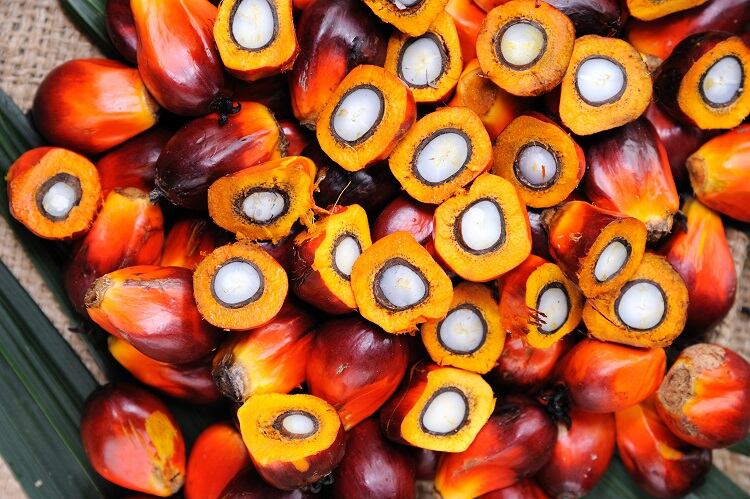
Shea-based system
BLC sources its shea from women’s groups in West African countries, including Burkina Faso, Ivory Coast, Mali, Ghana, Togo, Benin, and Nigeria, where the nut grows wild along the Savanna belt.
“Only the excess harvest is sold; the sale and export of shea butter doesn’t compete with the local food supply and we have implemented a full sustainability programme to boost the local communities there,” we were told.
BLC is an active member of the Global Shea Alliance, which works to promote a sustainable industry, and according to the company’s recently introduced Shea Dashboard, it sources part of its volume as certified shea butter
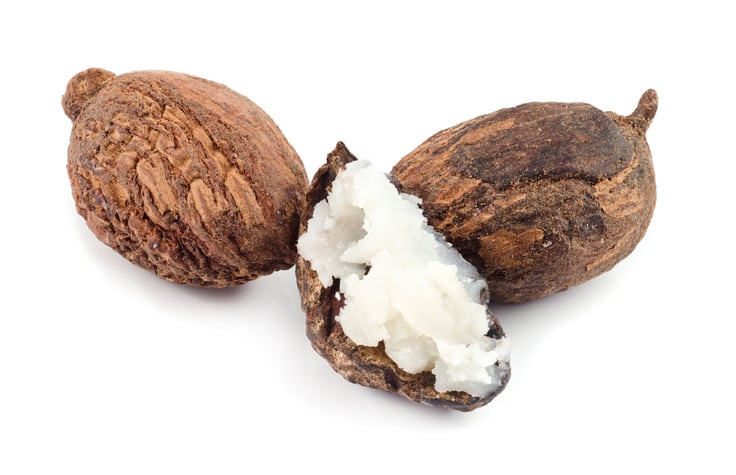
With regards to nutrition, neither palm nor shea fat, which are non-hydrogenated, contain trans fats. While both contain more saturated fat than some other plant-based alternatives, such as rapeseed and sunflower, they contain lower levels than animal fat.
This means, according to BLC, that these fats perform better on the griddle. “They may be used at a lower level in the end product to avoid increasing the saturated fat level. Palm and shea are more stable to oxidation by nature, possessing a higher smoke point compared to other plant oils. They give less oil leakage and smelly smoke.”
Earlier this month, Bunge Loders Croklaan announced a new shea margarine which it says has an ‘exceptional sensory performance’, particularly for the bakery category. The firm suggested the dairy alternative enhances the ‘puff, crispiness and colour’ in products such as croissants and Danish pastries.


